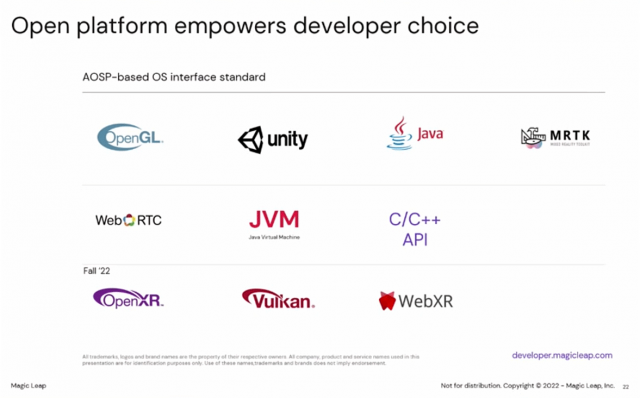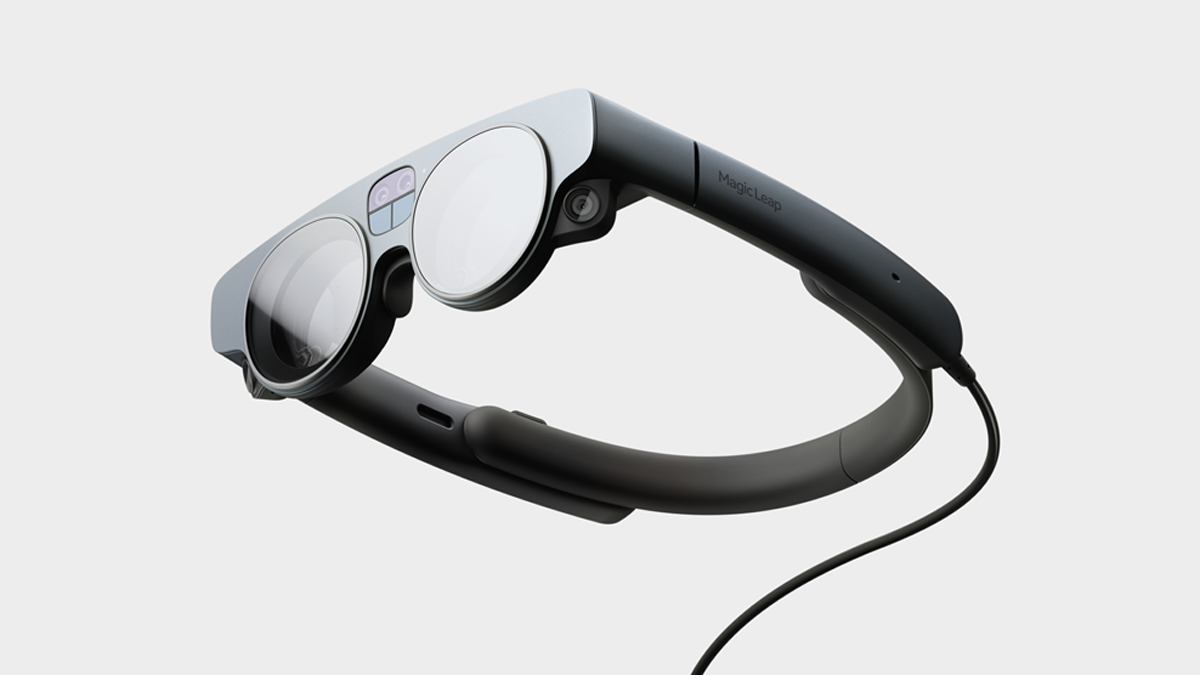In an ongoing shift away from a somewhat proprietary development environment on its first headset, Magic Leap has committed to bringing OpenXR support to its Magic Leap 2 headset later this year.
Although Magic Leap 2 is clearly the successor to Magic Leap 1, the goal of the headsets are quite different. With the first headset the company attempted to court developers who would build entertainment and consumer-centric apps, and had its own ideas about how its ‘Lumin OS’ should handle apps and how they should be built.
After significant financial turmoil and then revival, the company emerged with new CEO and very different priorities for Magic Leap 2. Not only would the headset be clearly and unequivocally positioned for enterprise use-cases, the company also wants to make it much easier to build apps for the headset.
To that end Magic Leap’s VP of Product Marketing & Developer Programs, Lisa Watts, got on stage at week’s AWE 2023 to “announce and reaffirm to all of you and to the entire industry [Magic Leap’s] support for open standards, and making our platform very easy to develop for.”
In the session, which was co-hosted by Chair of the OpenXR Working Group, Brent Insko, Watts reiterated that Magic Leap 2 is built atop an “Android Open Source Project-based OS interface standard,” and showed a range of open and accessible tools that developers can currently use to build for the headset.
Toward the end of the year, Watts shared, the company expects Magic Leap 2 to also include support for OpenXR, Vulkan, and WebXR.

OpenXR is a royalty-free standard that aims to standardize the development of VR and AR applications, making hardware and software more interoperable. The standard has been in development since 2017 and is backed by virtually every major hardware, platform, and engine company in the VR industry, and a growing number AR players.
In theory, an AR app built to be OpenXR compliant should work on any OpenXR compliant headset—whether that be HoloLens 2 or Magic Leap 2—without any changes to the application.
OpenXR has picked up considerable steam in the VR space and is starting to see similar adoption momentum in the AR space, especially with one of the sector’s most visible companies, Magic Leap, on board.
,
